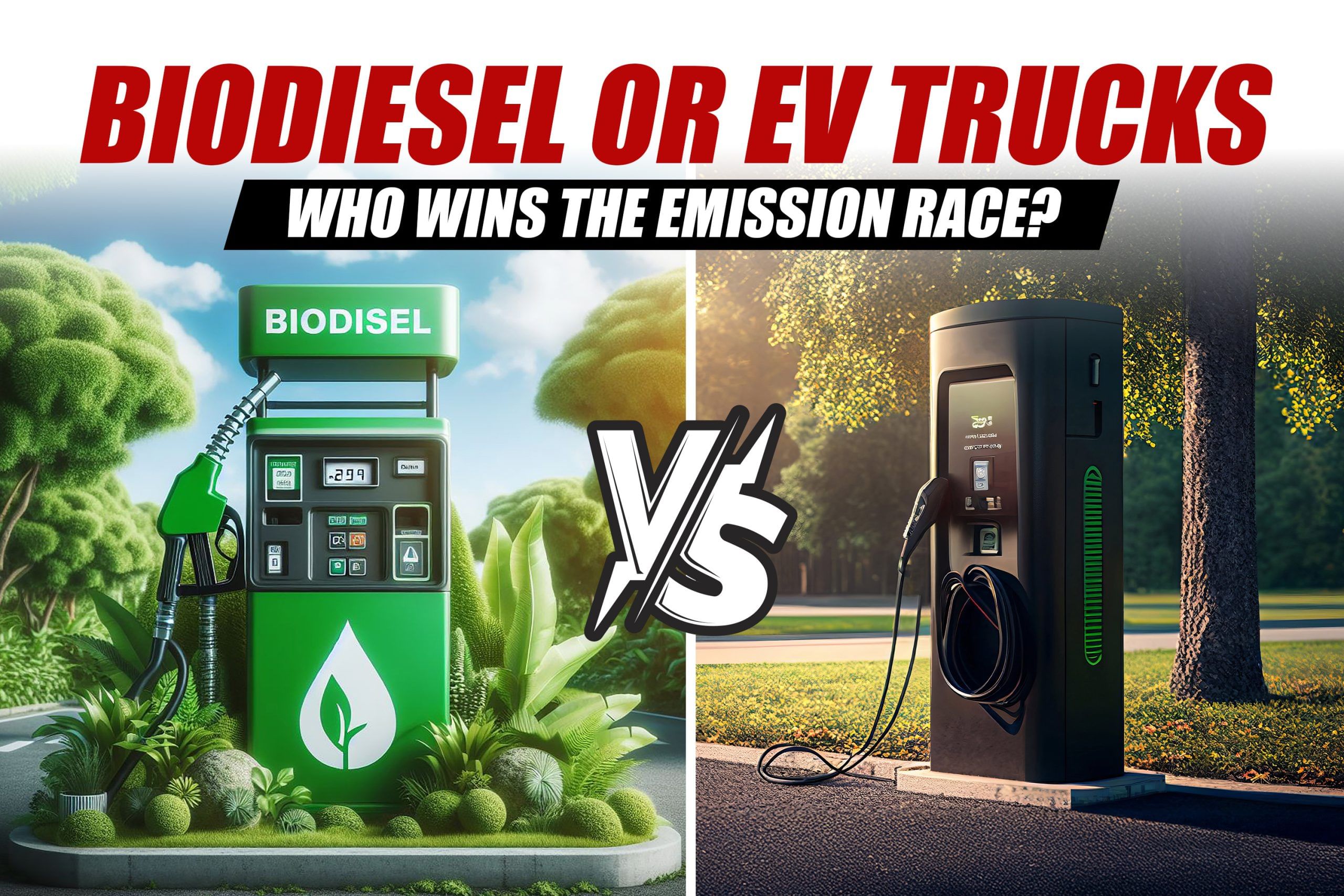India's commercial vehicle industry is under mounting pressure to minimize emissions. Fleet operators, manufacturers and policymakers are being asked to lower emissions and facilitate cleaner transportation. Biodiesel trucks and electric trucks (EVs) have emerged as the two leading technologies to decarbonize systems. Both technologies promise to manage emissions and enhance efficiency while facilitating India's ambitions for net-zero.
1. Biodiesel Trucks: The Solutions for Today
Biodiesel is a renewable fuel made from vegetable oils and fats or recycled cooking oils. Biodiesel can be blended with diesel in an array of blends; B20 and B30 are commonly used blends, allowing existing engines to run with a small amount of change.
For many commercial vehicles, biodiesel represents an immediately deployable solution to achieve decarbonization. Biodiesel will reduce carbon monoxide, hydrocarbons and particulate matter while using existing fuel supply infrastructure. Fleets will have trucking fleets that can convert to biodiesel without capital expenditures on new engines or relying on charging infrastructure.
Benefits of biodiesel trucks:
- Engines maintain compatibility with current diesel infrastructure.
- Particulate and sulfur emissions lower significantly.
- Biodegradable and low in environmental toxicity.
- Fleets suffer minimal disruption from adoption.
Efficiency is subject to feedstock sustainability, blend ratio and supply chain efficiency. Though biodiesel lowers emissions, burning also emits some greenhouse gases, making it a temporary solution.
2. Electric Trucks: Zero Tailpipe Emissions
Electric trucks run on batteries only. They emit no tailpipe emissions, offering one of the cleanest solutions in commercial freight. The environmental impact of EV truck emissions varies with electricity generation: renewable power optimizes reduction, coal power reduces impact.
Benefits of electric commercial trucks:
- No tailpipe emissions.
- Lower operating and maintenance costs.
- Smooth and quiet ride.
- Ability to integrate with renewable grids and regenerative braking.
- Difficulties are charged with initial high costs, reduced recharging infrastructure and more extensive recharging compared to biodiesel fueling.
3. Lifecycle Emissions Comparison
The distinction between biodiesel and electric trucks becomes more understandable when considering lifecycle emissions: production of fuel, operation of the vehicle and end-of-life disposal.
| Stage | Biodiesel Trucks | Electric Trucks |
| Fuel Production | CO₂ from agriculture, processing and transport | CO₂ from battery production and mining materials like lithium and cobalt |
| Vehicle Operation | Lower than diesel but not zero | Zero tailpipe emissions |
| Energy Source | Renewable feedstock is key | Grid-dependent; renewable energy maximizes benefits |
| End-of-Life | Easier disposal | Battery recycling is a challenge |
EVs lower lifetime carbon emissions, particularly with use of renewable power. Biodiesel continues to be an effective transitional fuel where EV charging infrastructure is poor.
4. Real-World Adoption
Fleet operators appreciate biodiesel for its cost-effectiveness and easy adoption. Government initiatives, including the B20 blending mandate by 2025, support adoption. EVs are gaining popularity in city delivery, logistics centers and government fleets. Players like Tata Motors, Ashok Leyland and Volvo are piloting electric commercial trucks for intercity and port use. Practically, biodiesel emission reduction fulfills short-term requirements, while EV truck emissions provide long-term environmental benefits.
5. Economic and Environmental Considerations
- Cost Efficiency: Biodiesel utilizes existing engines and infrastructure; EVs have greater initial cost but lower operational costs in the long run.
- Energy Security: Biodiesel offsets use of imported diesel and spurs agriculture; EVs offset fossil fuel use and promote adoption of renewable energy.
- Policy Support: India's National Biofuel Policy 2018 and FAME-II incentives for EVs propel clean energy trucks, endorsing both technologies.
Conclusion
Biodiesel trucks lead to immediate carbon emissions reductions and can easily fit into existing fleets. Electric trucks mean zero tailpipe emissions and greener innovations for the broader future of transportation. The path to efficiency and effectiveness in a cleaner, more sustainable transportation approach for India's commercial vehicle industry is by adopting both forms of technology: using the measured sensibly for the measured application.
Stay updated with 91Tractors for more articles, insights, and news from the tractor and agriculture industry. Don’t forget to subscribe to our YouTube channel and follow us on Facebook, Instagram, and LinkedIn for the latest videos and updates.
Also Read:
Truck vs. Train: Which Delivers Cargo Faster on Indian Routes?
Commercial Vehicle Accessories Market to Reach USD 179.42 Billion by 2034









